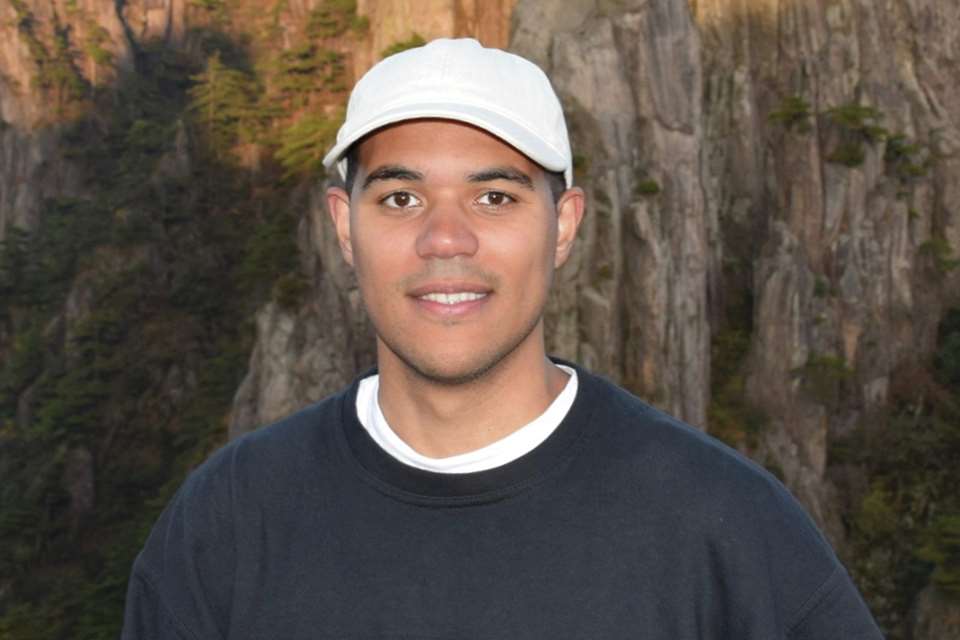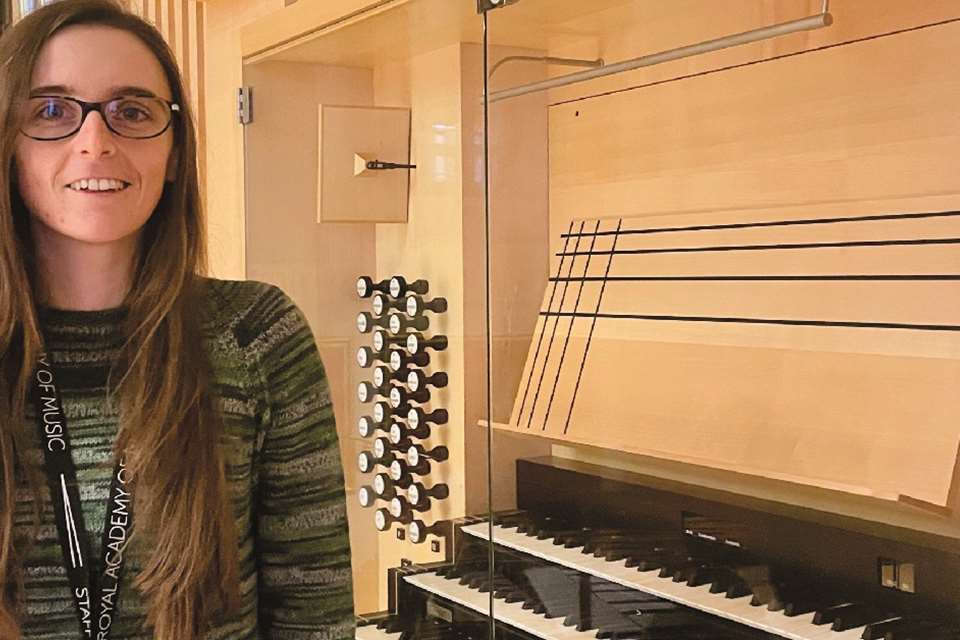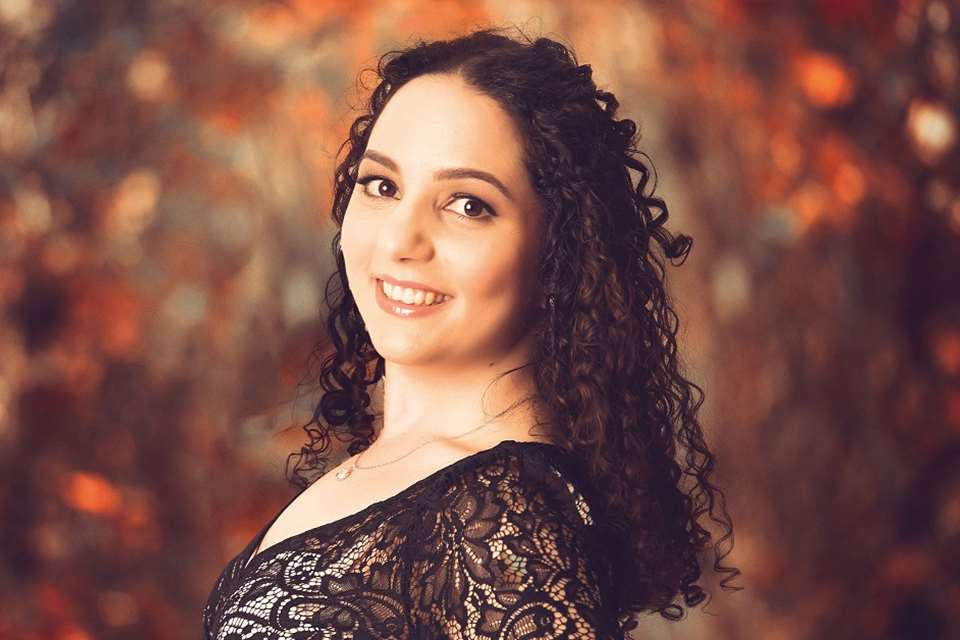John Sturt - The Doubter’s Prayer
Friday, April 14, 2023
John Sturt found Anne Brontë’s poem resonated with him as he grappled with his own beliefs. He talks to Matthew Power about his new work for mixed choir and organ

With composition as his principal goal, John Sturt’s current day job is as a bass lay clerk at Peterborough Cathedral. Despite the structure to rehearsals, services and seasons, no two days are the same. ‘You are always alert,’ he says. ‘There is so much repertoire and little rehearsal time, so you have to squeeze every ounce of improvement out of it.’ On occasion, services are sung by the lay clerks only – six of them, plus two choral scholars – and Sturt has written Preces and Responses for this ATB line-up which have now entered the repertoire at Peterborough.
Prior to his move north, Sturt spent a full six years studying Composition at Trinity Laban Conservatoire of Music & Dance (TL), contained in a wing of the Old Royal Naval College at Greenwich, where he also sang in the chapel choir. Did this expanse of time in one place give him a sense of his own musical growth? ‘I stayed there because I felt secure without being sheltered and that journey did give me a sense of development. I was quite different by the end of my undergraduate training, then two years later, completing my Master’s degree, I had changed again.’ He was supervised by five composition tutors in total. Was that array entirely complementary or were there contradictions in their approach? ‘There was no difficulty. They all worked on different parts of my compositional life, to take it apart, strengthen it and put it back together. Deirdre Gribbin prised open my intellect and showed me the power of notation; Paul Newland showed me the breadth and depth of the musical landscape; Errollyn Wallen got me invested in drama and words; Stephen Montague encouraged my sense of self-discipline and desire for adventure; Soosan Lolavar furthered my intellectual curiosity and a sense of “do what thou wilt”, which is the beauty of post-Modernism.’
Did postgraduate study nurture a deepening musical approach? ‘I had to solidify what I had as a musician and then collaborate more with others. I had to be an active listener, to make compromises, but also to express [my aims].’ His major projects then were a set of songs in Anglo-Saxon and a chamber opera, Minutes to Midnight, working with librettist Sophia Chapadjiev. For composers (and organists), collaboration is vital for growth. ‘As a composer, it is other musicians who will bring your music fully to life, so you have a vested interest in collaboration.’
Since college, Sturt also works as a professional music copyist on projects which include engraving for his previous teacher Errollyn Wallen [see C&O November 2021, p.14ff]. That must be rewarding, given how vibrant and extraordinary her music is. ‘That’s a perfect description of Errollyn! My work as a copyist is invigorating but it also brings a huge sense of responsibility. What I do will shorten or lengthen rehearsals, so it is of paramount importance that I get it right. I’m continuing to learn about the process, as every copyist does. I have produced parts for Errollyn’s new opera Quamino’s Map, alongside a team of other copyists; it has been lovely to be part of that group.’ Sturt was also tasked with completing Wallen’s score of The world’s weather for its world premiere last year given by the BBC Scottish Symphony Orchestra. Composed 22 years earlier, Sturt had to recreate the score in a digital format for editing. That project played to his strengths: ‘Errollyn likes florid gestures, and to make those clear and exacting is one of the great joys of being a copyist.’
Listening to examples of Sturt’s music, especially his orchestral writing, I am struck not only by his overtly tonal language but by its cinematic quality. ‘I have been influenced by film music. I rewatched the 1996 remake of 101 Dalmatians with music by Michael Kamen. The leitmotif moments, the recognisable melodic content and compelling harmonies and orchestration must have rubbed off on me. I would like to compose production library music as a way to have my music recorded and used in different media, and also as a means to support my own projects. In “serious” composition we are encouraged to look for influences in a similar [genre]; but I am coming around to the belief that influence can come from basically anywhere, as long as I can explain it well. I have experienced negative comments about my music sounding filmic; I was once told by a conductor that it was “too simple to be taken seriously” which definitely came as a knock-back, but it also gave me the determination to continue down this path.’
Sturt’s tonal style has influences of Vaughan Williams as well as contemporary composers; is there a challenge to writing purely tonal music in terms of achieving originality? ‘Inevitably in a universe of finite [musical] ideas there will be bits and pieces that could accidentally refer to another. I don’t believe that is a problem; of course I do my best not to tread on other people’s toes as a matter of courtesy, but I don’t find there is any challenge to originality in my writing of unashamedly tonal music. I honestly believe [that] in this post-Modern age composers should be able to write whatever they like, whether that is tonal or experimental. I have plenty of friends who create the most extraordinary music, in whom I see so much – Caitlin Harrison and Amy Summers are two examples – we are very different musically, but of the same mould in that we shared some of the same teachers.’
His New Music piece, The Doubter’s Prayer for choir and organ, sets extracts from a poem by Anne Brontë. ‘I was attracted to it because, while not specifically about agnosticism, it deals with doubt, and I sympathised with what Brontë was going through when she wrote this poem.’ She struggled with ill health and had gastric fever, a form of tuberculosis, from which she died at the age of 29. Sturt references his own serious illness, Hodgkin’s lymphoma, which he contracted at the age of 11. ‘Although she was deeply religious, doubt followed Brontë wherever she went,’ he says. ‘Although I am agnostic and my journey with faith didn’t resolve itself in the same way that Brontë’s did, doubt is something I am familiar with.’ There is clarity to the text-setting and a luminosity to the organ writing, and he talked to Joseph Fort (who will direct the premiere performance) while composing it. ‘The end of the piece, with that high flute-like solo, was largely Joe’s idea, thinking of the “Lux aeterna” in Duruflé’s Requiem.’ Sturt also credits organist Francesca Massey, for whom he wrote a piece in 2021, with refining his organ writing at that stage. ‘Any prowess I show at organ writing is really down to Francesca and Joe!’
Citing Vaughan Williams and his Fantasia on a Theme by Thomas Tallis as a key influence, Sturt reveals what drives his creative process: ‘I want to create enough richness in my harmony to be able to wrap myself in it. I write music to say what I can’t say in [words], and also as a shield against the unfiltered chaos of real life. As a neurodivergent person I find the world incredibly overwhelming, and if a piece of music has a very warm harmonic texture – perhaps a divided string chord that extends across the consonant range of the harmonic series – then I have an almost euphoric response of feeling protected.’
Watch the performance
Joseph Fort conducts the Choir of King’s College London and organ scholar Charles Maxtone-Smith in a performance of John Sturt’s The Doubter’s Prayer.
Download the score
The score for The Doubter’s Prayer, commissioned by Choir & Organ in partnership with the Choir of King’s College London and supported by PRS for Music, was available to download and perform until 31 December 2023. Visit our New Music section to see our latest scores.









